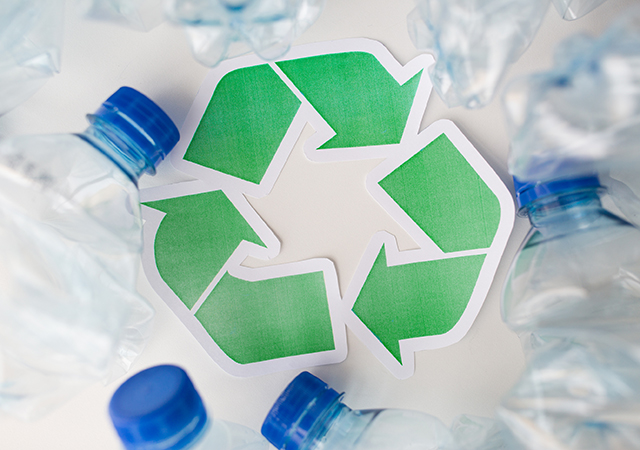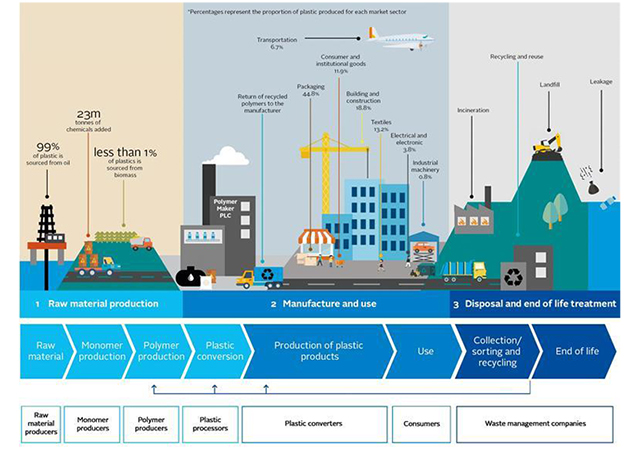

The level of global interest in plastic production, consumption, and waste has soared in recent years. While much of this focus has been on the risks and impacts, it is important to recognise that the flexibility and resilience of plastic mean that products made from the material perform many crucial functions in society and across sectors, according to Principles for Responsible Investment (PRI).
The plastic value chain is complex, touching most (if not all) business sectors globally. Therefore, investor portfolios are exposed to an array of risks and opportunities associated with plastic, the PRI report says.
SECTORAL RISKS ACROSS THE VALUE CHAIN
Different sectors will experience near and long-term risks across the plastic value chain, driven by shifting demands for plastic, regulation, changes in supply of raw materials and alternative materials, and access to recycled materials.
Starting with raw material production, the oil and gas sector is responsible for fossil-based production. Investors should consider the long-term risks (stranded assets) facing the sector in the future due to potential disruptions in demand for plastic packaging and the supply of alternative materials.
On the production of bio-based feedstock, the agricultural products sector will find itself under closer scrutiny amid competing demands for food security and responsible sourcing requirements, says a PRI report.
Related to bio-based feedstock is the topic of bioplastics. There are many misconceptions about bioplastics as investors consider alternatives to conventional oil-based plastic. It is important to note that bio-based materials may or may not be biodegradable, and biodegradable materials that are used as alternatives to plastics may or may not be bio-based. A major challenge is that recycling is only suitable for non-biodegradable (fossil or bio-based) plastics, which is not always clearly signed.
INTEGRATED PETROCHEMICAL PLAYERS
Global fossil fuel-based plastics production is dominated by large petrochemical companies, including some major oil and gas producers. However, some of these companies are becoming more integrated players in plastic production, providing waste processing solutions and supplying raw materials.
PACKAGING SECTOR PRESSURES AND OPPORTUNITIES
The containers and packaging sector, as well as related sectors such as food and beverage and consumer goods, face reputational and regulatory pressures to use alternative materials and recycled content at scale. This is creating opportunities for companies to collaborate and find solutions with different players across the value chain.
THE ROLE OF WASTE MANAGEMENT
While waste management is part of the problem, it is also part of the solution. Less than 20 per cent of plastic waste is currently recycled globally, and demand for recycled content is outstripping supply. This will be amplified by regulatory disruption in the secondary commodities market.
